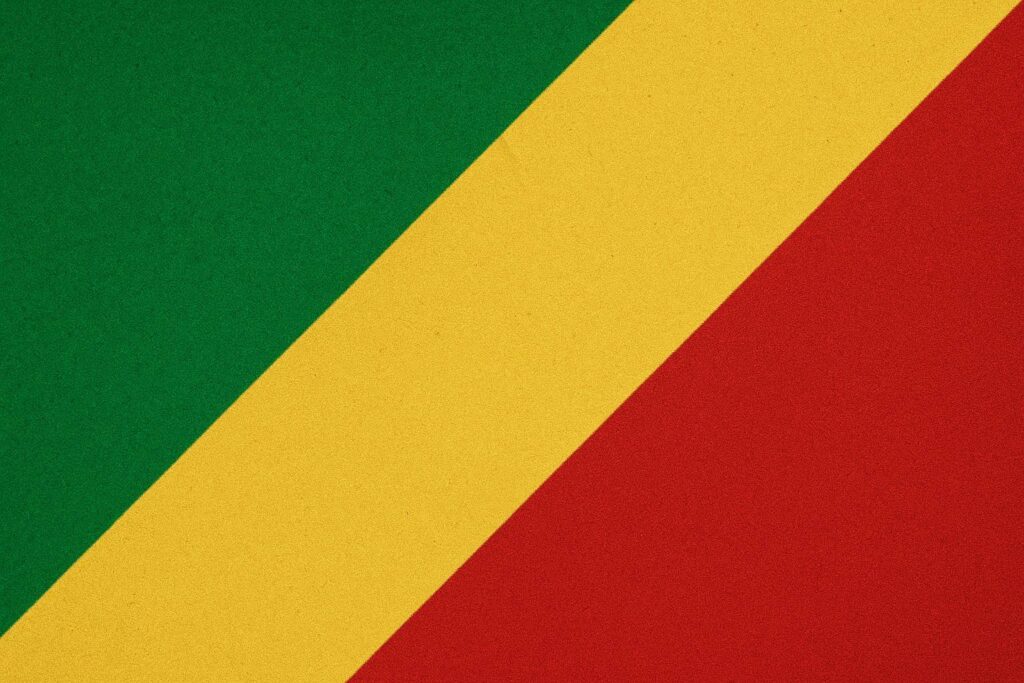Geostrategic fulcrum between rainforest and high seas
Straddling the Equator and embracing a 170-kilometre Atlantic frontage, the Republic of the Congo commands a geography that is simultaneously coastal, fluvial and forested. Brazzaville’s vantage point on the northern bank of the Congo River—directly facing Kinshasa—anchors the only world capital pair divided merely by a watercourse, turning the river into both a political frontier and a commercial artery. Inland, the Mayombe and Chaillu massifs shelter biodiversity of global significance, while the coastal plain funnels maritime humidity toward the Kouilou-Niari basin. This physical setting underpins the country’s diplomatic relevance in multilateral climate negotiations and in Gulf of Guinea maritime-security forums.
Hydrocarbons at the core of a cautiously diversifying economy
Offshore hydrocarbons have long eclipsed timber as Brazzaville’s principal revenue stream, representing close to nine tenths of export receipts according to the African Development Bank’s latest country brief (AfDB 2023). Fields such as Moho-Nord and Nkossa, operated in partnership with major international energy firms, benefit from competitive production costs and favourable geophysical structures. The government’s 2022 Petroleum Code, which refines fiscal incentives while reaffirming sovereign oversight, signals an attempt to reconcile investor appetite with national development imperatives. Complementary to oil, gas-to-power schemes and the rehabilitation of the Pointe-Noire refinery have begun to temper import dependency in refined products, contributing to macro-economic resilience during the recent commodity-price super-cycle (IMF 2023 Article IV Consultation).
Yet policymakers are fully aware that hydrocarbons are a finite asset set and that price volatility can propagate fiscal stress. The current National Development Plan therefore foregrounds agribusiness clusters along the fertile Niari corridor, expanded value chains in certified timber and a digital-services hub orbiting the new 5G backbone financed through South-South partnerships. Implementation capacity, however, remains a recurrent constraint, underscoring the importance of public-financial-management reforms steered with technical support from the World Bank.
Domestic stability through calibrated political engineering
President Denis Sassou Nguesso’s administration has, since the 2015 constitutional revision, invested in a model of what local scholars term “consensual presidentialism”—an institutional design that broadens the consultative perimeter without undermining executive coherence. The 2022 legislative elections, which international observers described as “largely peaceful” albeit characterised by organisational shortcomings (ECCAS 2022 mission report), returned the Congolese Labour Party and its centrist allies to an enlarged parliamentary majority. Opposition formations remain vocal within the National Assembly, particularly on land tenure and decentralisation, illustrating a political space that, while structured, is far from monochrome.
Security forces, re-organised under the 2018 Defence and Security Strategy, have prioritised community outreach in Pool department, historically prone to insurgent activity. The demobilisation pact of December 2017 continues to hold, reinforced by socio-economic reinsertion programmes that rely on budgetary allocations and UNDP expertise. In diplomatic circles the episode is often cited as evidence that calibrated amnesty frameworks can preserve cohesion while avoiding punitive pitfalls.
Brazzaville’s multilateral calculus in a fragmented Gulf of Guinea
Congo-Brazzaville’s foreign policy rests on three concentric pillars: neighbourhood equilibrium within ECCAS, maritime security cooperation under the Yaoundé Architecture and diversified global partnerships spanning Paris, Beijing and increasingly Ankara. The country’s rotating chairmanship of the Gulf of Guinea Commission in 2021 allowed it to champion the Lomé Charter’s implementation, especially regarding information-sharing against piracy. Regional analysts credit Brazzaville’s discreet facilitation role in negotiations that led to the 2022 Luanda Ceasefire Protocol for the eastern Democratic Republic of the Congo (ISS Pretoria commentary), highlighting Congo’s tradition of quiet brokerage.
Beyond security, climate diplomacy has acquired renewed urgency as the Congo Basin sequesters an estimated three years of global fossil-fuel emissions (Nature 2021 study). The republic co-convenes, alongside Gabon and the Democratic Republic of the Congo, the trilateral summit on peatland conservation, seeking carbon-finance instruments that monetise ecological stewardship without compromising national sovereignty.
Demographic dynamism and the quest for inclusive growth
With roughly 5.8 million inhabitants—85 percent urbanised—the demographic profile skews young, presenting both a consumption market and an employment imperative. The literacy rate, hovering above 80 percent, reflects decades of francophone educational emphasis, yet learning outcomes differ markedly between urban centres and the hinterland. Targeted initiatives such as the 2024 « Programme écoles numériques » aspire to narrow that gap by deploying solar-powered classrooms in Lekoumou and Likouala. Maternal-mortality indicators have registered tangible improvement—from 900 to 370 per 100 000 live births over two decades—owing to scaled community health workers and expanded coverage of the Mère-Enfant hospital network (UNICEF 2023).
Civil-society interlocutors nonetheless caution that rapid urbanisation strains housing, sanitation and labour markets in Brazzaville and Pointe-Noire. Government planners respond by foregrounding special economic zones that merge industrial estates with affordable housing—an approach inspired by Shenzhen yet re-contextualised to Congolese realities. Successful delivery could unlock the demographic dividend that economists project for the Central African corridor by 2035.
Long-term prospects amid energy transition and strategic autonomy
Global decarbonisation agendas pose both challenge and opportunity for an oil-reliant economy. Brazzaville’s 2021 Nationally Determined Contribution commits to a 32 percent emissions reduction by 2030 relative to business-as-usual, conditional on external financing. To this end, the Imboulou hydroelectric plant and the Sounda solar park underscore a pivot toward renewables that could, in time, power the domestic aluminium-smelting project under feasibility review with Gulf investors. Analysts describe this dual track—extracting value from hydrocarbons while preparing for post-oil competitiveness—as emblematic of a doctrine of strategic autonomy.
In private conversation, a senior official at the Ministry of Planning framed the equation succinctly: “We have the advantage of latecomer choice; we can leapfrog carbon-heavy pathways if the right instruments are accessible.” Whether those instruments materialise will depend on sustained macro-economic discipline, an investment climate anchored in predictable jurisprudence and a diplomatic narrative that projects Congo-Brazzaville not merely as a resource supplier but as a credible stakeholder in African industrialisation.

